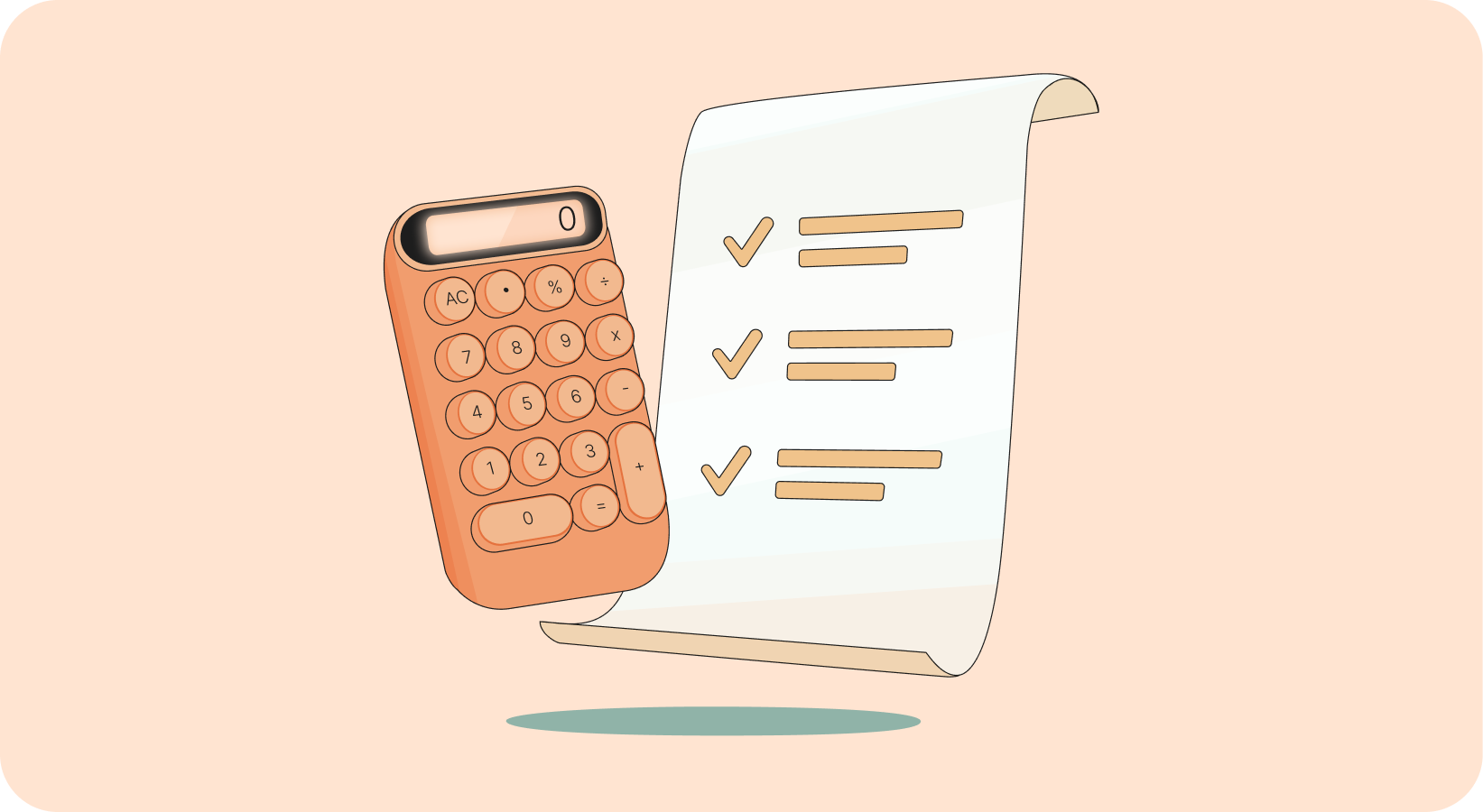January 15th is the deadline to make your fourth—and final—quarterly estimated tax payment for the preceding year.
If you missed or underpaid any of your other three quarterly estimated payments, you may be tempted to pay extra for Q4 so you can “catch up” and avoid penalties. But that tactic won’t absolve you from paying penalties on those missed or underpaid installments.
Here’s what to do when the Q4 deadline rolls around and you’re behind on quarterly tax payments. But first, a quick refresher on estimated taxes.
{{consult}}
What are estimated tax payments?
If you owe—or expect to owe—$1,000 or more in federal taxes for the year, you’re required to pay those taxes during the year when you incur them.
For instance, if you expect to earn enough income in 2025 that you will owe more than $1,000 in taxes, you’ll pay the total estimated amount in quarterly installments over the course of 2025.
The final Q4 installment is due January 15th, after the year ends. Following this example, that’s January 15th, 2026.
The deadlines for quarterly taxes fall on:
- April 15
- June 15
- September 15
- January 15
Note if any of those days fall on a weekend or holiday, then the deadline is the following business day.
If you’re brand new to quarterly estimated taxes, our guide to quarterly estimated taxes for therapists will get you started.
What happens if you miss or underpay a quarterly tax payment?
If you underpay or fail to make a quarterly payment, you can expect to be charged penalties.
Penalties for underpaying quarterly taxes
Whether you only partially pay a quarterly payment—that is, you don’t pay enough—or you completely fail to pay at all, the penalty is the same.
For every month that passes without the full amount being paid, the IRS charges you 0.5% on the total amount owing. That debt accumulates until you owe a total of 25% of the outstanding payment. Beyond that, it’s capped.
Keep in mind, this is a rule of thumb. It’s possible for the interest charged on overdue payments to change from one quarter to the next. Check IRS news releases for the latest changes.
Tax penalties are calculated quarterly, not annually
If you think you can make up an underpaid quarterly installment by paying extra the next quarter, think again.
Penalties are figured on a quarter-by-quarter basis. As long as you underpay taxes for a particular quarter, you’ll be penalized, regardless of how much you pay for the year.
Here’s an example. Let’s say you were short on cash early in the year and you only paid half the amount you owed for the first quarterly payment of the year (the Q1 deadline is April 15th).
Even if you pay extra with your next installment (the Q2 deadline is June 15th) in an attempt to make up the missing amount, you’ll be penalized for the underpayment in Q1.
In fact, if—by the time Q4 rolls around—you end up paying 100% of what you owe for the year in taxes, you’ll still have to pay interest on the Q1 underpayment.
Think of it this way: the IRS is focused on cash flow. They want steady, predictable payments going from your business to their pockets. If they didn’t, they’d let you pay all your taxes for the year as a lump sum, rather than as quarterly payments. When you disrupt that steady cash flow, you can expect to be penalized.
The safe harbor rule
If you end up paying less than you owed in total taxes for the year, you’ll have to pay penalties. The exception is if you take advantage of the safe harbor rule.
The safe harbor rule can save you from being penalized for underpaying the current year’s taxes so long as the amount you pay is at least 100% of what you paid the prior year in taxes, or 110% if your Adjusted Gross Income (AGI) is over $150,000.
Here’s an example. Suppose you paid $20,000 in federal taxes in 2023. But in 2024 you raise your rates and grow your client list, and it quickly becomes apparent to you—and your accountant—that you’ll owe the IRS more than $20,000 in taxes once the year is over.
That’s okay. So long as you pay at least $20,000 over the course of the year (assuming your AGI is less than $150,000), you won’t be penalized for underpaying in 2024.
{{consult}}
Can you catch up on quarterly payments in Q4?
No. Since penalties are charged on a quarterly basis, you can’t “catch up” in Q4 by paying extra.
However, it is important to make sure you pay your Q4 installment in full so you won’t be penalized for underpaying in that particular quarter.
It’s also a good idea to make your Q4 estimated payment on time. The next quarterly tax deadline—Q1 for the new tax year—is the same day as the tax filing deadline for sole proprietors (April 15th).
If you skip your Q4 payment now, you’ll be on the line for both your outstanding tax liability for the previous tax year and the quarterly tax payment for the current tax year.
Finally, throughout the year, if you ever find you’re unable to make a quarterly tax payment, it’s better you pay as much as you can and on time. You’ll be penalized for underpaying that quarter, but less than you would be if you skipped the payment altogether.
How to find out what you owe in penalties
It can be tricky calculating exactly how much you owe in penalties. You have two options:
- Wait for the tax year the end, and the IRS to send you a bill for the amount owing.
- Calculate the total using Form 2210 (Underpayment of Tax by Individuals, Estates, and Trusts).
If you’re new to quarterly estimated taxes, or you aren’t used to crunching numbers on your own tax returns, it’s best to get help with Form 2210 from an accountant.
How to get underpayment penalties waived
Finally, some good news: If you can provide a valid reason for having underpaid estimated taxes in a particular quarter, the IRS may waive the penalty fees.
You need to provide the IRS with a reasonable cause. Typically, that means one of the following:
- A casualty, disaster, death in the family, or other unusual circumstance
- You became disabled
- You are at least 62 years old and you retired
- It’s either a) your first time incurring a tax penalty, or b) you haven’t incurred a tax penalty in the past three years, and you’re claiming the First Time Penalty Abatement Waiver
To request the IRS waive your penalty, you’ll need to fill out and submit Form 2210. You’ll also need to attach a written statement explaining why you failed to make the quarterly payment in full.
The IRS also expects you to provide supporting documentation to prove you’re telling the truth. For instance:
- If you’re claiming unusual circumstances: Hospital bills, insurance claims, death certificates
- If you’re claiming disability: Hospital bills, doctors’ notes, disability insurance statements
- If you’re claiming retirement: Documents proving your age, supporting documents proving you retired on a particular date
In the event your underpayment was due to a federally-recognized natural disaster, there’s no need to submit a form. The IRS will automatically waive any penalties you incur.
—
For a complete overview of estimated payments and a look at how they affect your therapy practice, check out our guide to quarterly estimated tax payments for therapists.
This post is to be used for informational purposes only and does not constitute legal, business, or tax advice. Each person should consult their own attorney, business advisor, or tax advisor with respect to matters referenced in this post.
Bryce Warnes is a West Coast writer specializing in small business finances.
{{cta}}
Manage your bookkeeping, taxes, and payroll—all in one place.

Discover more. Get our newsletter.
Get free articles, guides, and tools developed by our experts to help you understand and manage your private practice finances.
Every quarter, we calculate your estimated federal and state payments and even remind you when to pay so you never miss a deadline. Book a free consult to learn more.
Schedule a free consult



